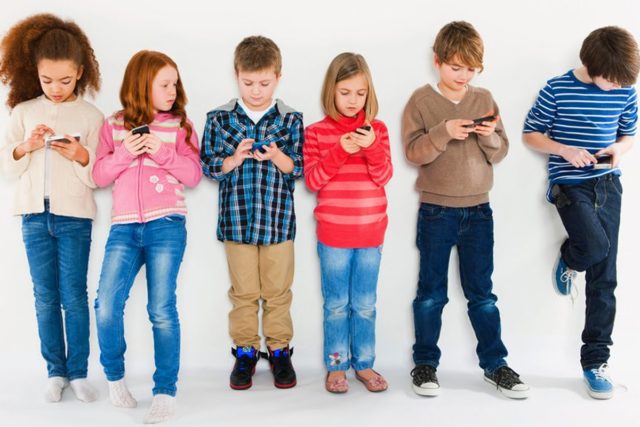While millennials make up 27 percent of the US population, the following generation (Gen Z) is right behind them at 25 percent and growing. This emerging demographic is made up of small children, teenagers and young adults entering the workforce, but don’t let their youth fool you—Gen Z accounts for 25 percent of all consumer spending, and within the next decade, it’ll be responsible for 40 percent, according to a report by Universum. Gen Z doesn’t remember the events of 9/11 or a time when the world wasn’t connected via the internet. Since digital makes up most of their reality, these statistics should be telling, but not surprising.
Gen Z is:
Connected
According to Deep Focus, Gen Z spends an average of 10 hours per week online. Fifty-one percent of tweens have a social media account and 70 percent regularly use their smartphones to send photos, text and emails. Eighty-four percent of respondents browse an internet-connected device while watching TV and 14 percent of the respondents admitted to having made a purchase within an app-based game.
The same study revealed that 55 percent of Gen Zs will stop and watch an ad if it is humorous. Furthermore, 45 percent will also pay attention if an ad has great music, and 33 percent will value an ad if it is inspiring. Like their story-loving parents, 67 percent of the respondents said that they are more interested in narratives and content that have realistic endings. They are also nearly twice as likely to want to see “real people,” rather than celebrities, endorse products and brands.
Wikia’s findings also reflect a generation that embraces technology in everything they do. In fact, only 43 percent of Generation Z value the time when they’re unplugged and 47 percent said they were more actively connected than a few months prior to the survey. Seventy-six percent agree that their experience with technology will help them reach their goals and 66 percent say technology makes them feel like anything is possible. The study also found that Gen Z is actively connected throughout the day, with 25 percent checking email and messages within five minutes of waking up and 73 percent connecting within the hour.

Social
Gen Z may be connected digitally, but this demographic also values in-person interaction more than their parents. According to a recent study by Fluent, 61 percent would rather connect with someone in real life. While you’re enjoying time together, the Gen Z across from you is most likely plugged in at the same time, however. Forty-eight percent said they logged into Facebook multiple times a day.
A report from eMarketer estimates that 17.5 million social network users between the ages of 12 and 17 will use a social network at least once per month in 2016, with that number growing to 18.2 million by 2020.
Heavily Influenced By Video
When it comes to consuming video content, Fluent’s study found that 80 percent head to YouTube, but Facebook is a close second at 79 percent. Additionally, 32 percent watched video for at least an hour a day, while 30 percent view for two hours and 21 percent view for three hours. Gen Z feels more connected to YouTube stars than traditional celebrities. Research from November 2014 by Defy Media revealed that 54 percent of teens surveyed followed YouTubers on social platforms, compared to 42 percent who followed TV and movie stars.
YouTube isn’t the only place where this generation consumes its entertainment. Seventy-one percent of Gen Z has a Netflix subscription—more than any other generation, according to a report by VisionCritical, while only 45 percent of them watch cable TV on a television.
Discerning Shoppers
In the same study, Gen Z respondents named “aesthetic” as the number one thing they look for in the products they buy. Fashionable design matters to 67 percent, as well—more than any other generation. When it comes to food products, 73 percent of Gen Z look for prices and promotions more than any other feature, followed by nutritional content at 67 percent.
This young generation is confident, tech-savvy and careful with spending. Eighty-nine percent are confident that they will be able to buy a house and bequeath their estate—more than any other generation surveyed. Following that trend, Gen Z is confident they will be able to buy whatever they want (within reason) and travel the world. Bad news for Airbnb, though, as 86 percent say they’d rather stay at a hotel compared to just 12 percent with the couch-surfing and experience service.
With youth and money comes a bit of naïveté, however—73 percent said they trust financial institutions “very much” or “somewhat.” According to a Stanford University study of 7,804 students from middle school through college, an incredible 82 percent of middle-schoolers couldn’t distinguish between an ad labeled “sponsored content” and a real news story on a website. Nearly 4 in 10 high school students believed, based on the headline, that a photo of deformed daisies on a photo-sharing site provided strong evidence of toxic conditions near the Fukushima Daiichi nuclear plant in Japan, even though no source or location was given for the photo.
Let’s hope that with age comes a bit of wisdom with all that buying power.

